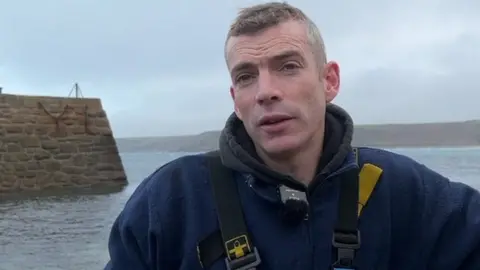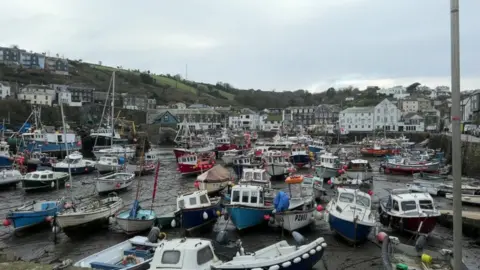Pollack fishing: Setting quota to zero 'damaging' to South-West industry
 BBC
BBCA decision to set the pollack catch quota to zero will be "damaging" to the fishing industry, those working in South-West England have said.
The Department for Environment, Food & Rural Affairs (Defra) said the quota had been reduced to preserve stocks.
It said it recognised the "impact" the decision "may have" and was working to "explore potential mitigations".
Ben George, who fishes from Sennen Cove in Cornwall, said he never once "dreamed it could be a total ban".
"It's particularly damaging for the small inshore fisherman, because they can't diversify easily now to anything else," he said.
"It makes up 30 to 40% of my earnings, whereas [for] some people, it might be 80, 90, maybe 100%."
Mevagissey fisherman Daniel Hunkin added that the decision had left him with "a mixture of disbelief and anger".

Defra said the quota was lowered following advice from the International Council for the Exploration of the Sea.
The stock of pollack in the Channel is shared between the EU and UK.
In 2022, the quota for the UK sat at 1,821 tonnes, and in 2023 it was 1,506 tonnes.
Ben Goldsmith from Defra said: "The quotas change. It makes some types of fish you can't fish for, and others you can fish for.
"Frankly people have to adjust. Fishermen always have to gear up to go out and get the particular types of fish they need.
"Do you wait until the fish is exhausted or do you start putting in tough measures now?"

Follow BBC News South West on X (formerly Twitter), Facebook and Instagram. Send your story ideas to [email protected].
